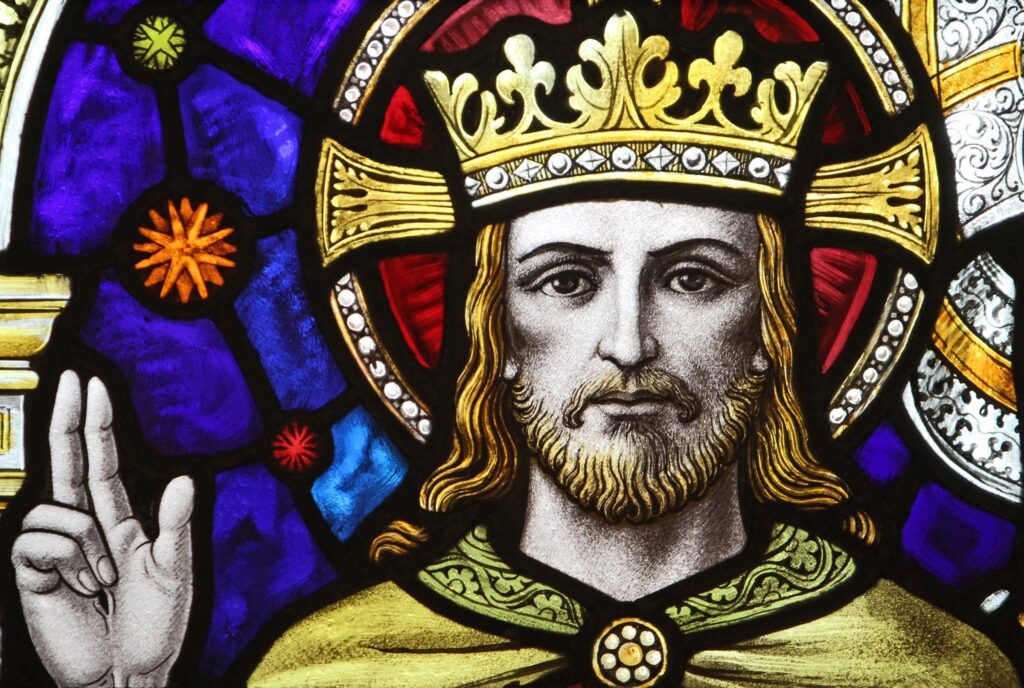Pope Leo XIV has urged the faithful — especially those in public life — not to live “divided lives.” That is, we must not compartmentalize our faith or exclude it from shaping every area of life. Faith is not a private hobby; it is the foundation by which we order our actions, relationships, and society itself.
One way the church can help the faithful overcome this divided, overly individualistic approach to faith is to restore the feast of Christ the King to its original date: the last Sunday of October, just before the solemnity of All Saints. Originally instituted by Pope Pius XI in 1925, the feast was a clear response to growing secularism and nationalism. It proclaimed that peace, order and justice in the temporal world come only under the reign of Christ.
Building ‘The City of God’
Liturgical details might seem minor, but “lex orandi, lex credendi” — the law of prayer is the law of belief. And belief shapes identity. What we believe about Christ’s kingship should inform how we live, not just personally, but socially and politically.
We are called not merely to be saved, but to become saints by making Christ present in every part of our lives, especially in public life.
Pope Leo echoes the vision of St. Augustine in “The City of God,” reminding us that two spiritual cities contend for our loyalty: the city of God, built on the love of God, and the city of man, built on self-love and autonomy. In the latter, Satan — the usurper prince of this world — invites us to live by our own rules. This leads to chaos, conflict and despair.
But when we live under God’s law — theonomy, not autonomy — we bring divine order to our institutions, relationships and communities. Through baptism, we share in Christ’s sonship. Through the Holy Spirit, we are empowered to make his kingdom manifest on earth, as it is in heaven.
Christ is king not in metaphor or in some future time, but in reality and right now. He has conquered death, defeated the prince of this world, and reigns in glory. The church, his mystical Body, has been commissioned to baptize the nations and draw all things into communion under his reign.
The feast as mission
The modern celebration of Christ the King, which was moved to the final Sunday of the liturgical year in 1970, focuses on the end of time, when Christ will return in glory. This is true, but it risks sidelining the feast’s original intent: to proclaim Christ’s kingship here and now over the temporal order, and to call Christians to make that kingship visible in public life.
Moving the feast back to its original date would reestablish its connection with All Saints’ Day, reminding us that sanctity is not a private affair. Saints are those who enthrone Christ not just in their hearts only, but in their work, families, institutions and cultures.
The modern temptation is to treat the church as a private club, a therapeutic community for spiritual encouragement or a lifestyle group for people with shared devotional tastes. But the church is not peripheral to the world. It is a movement of God’s people in history drawing economics, politics, education and culture into the life of the kingdom.
A privatized form of faith has too often muted the church’s influence. In the name of pluralism and good manners, many Catholics keep their faith to themselves, allowing secularism to dominate American public life. But Christ is either King or he is not.
To reduce him to a helpful personal option is to deny the Gospel’s power and its universal claim.
Our mission in the world
The good news is that Christ has already won the victory (the actual meaning of the Greek word for gospel, the euangelion). Now he calls us, the church militant, to carry out his mission.
We become saints not just through piety, but by living the Gospel in every part of life. It is hard work, to be sure, and it requires love and sacrifice. But the soul of the world depends on it.
Restoring the feast of Christ the King to its original place won’t solve everything, but it will send a clear signal. It will remind the faithful that our mission is not only heaven, but also the transformation of earth under Christ’s reign.
This work gives purpose, meaning and joy to a world in desperate need of it, and is truly good news.
Jason Adkins is host of Our Sunday Visitor podcast “Catholic in America,” which explores topics related to the missionary imperative of faithful citizenship in our time. You can find “Catholic in America” on the major podcast platforms or visit catholicinamerica.osvpodcasts.com.

